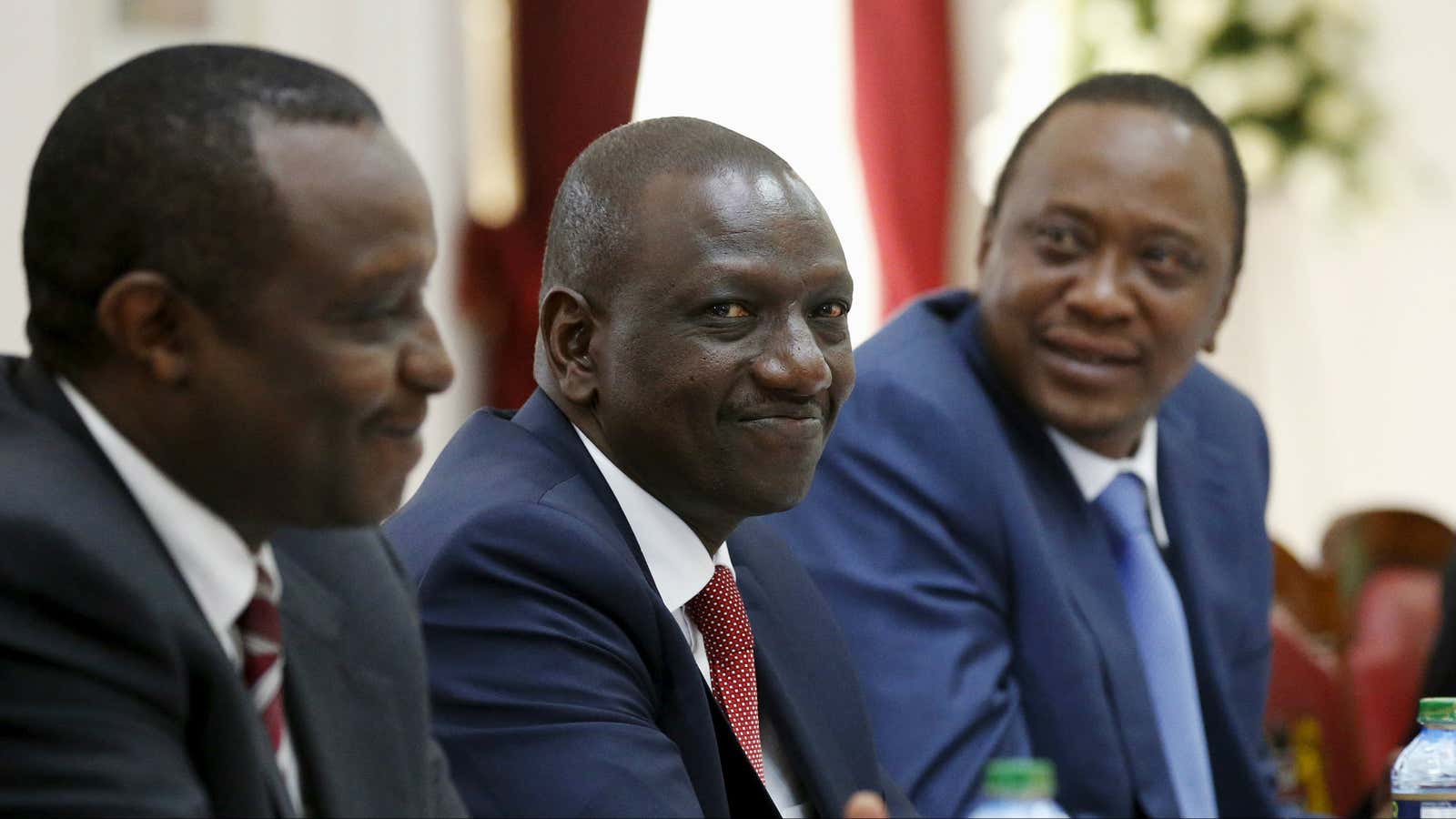Pope Francis is on his way to Kenya today (Nov. 25) and the way things have been going in east Africa’s largest economy, they sure could use his prayers.
Last night, president Uhuru Kenyatta announced a cabinet reshuffle, ostensibly in response to a series of corruption allegations that have created a sense of national crisis in the country.
Among the changes he made was the firing of cabinet secretaries suspended earlier in the year for charges of graft. The decision follows a speech on Monday in which he declared corruption a national security problem. ”The bribe accepted by an official can lead to successful terrorist attacks that kill Kenyans,” he said.
Analysts are skeptical, however, the reorganization will significantly improve the situation. “The reshuffle does not signal any changes in policy, nor will it placate domestic and international criticism over the rampant corruption that has plagued the Kenyatta administration,” Ahmed Salim, senior analyst at Teneo Intelligence, said in a note to investors.
By awarding the energy docket to an ally and sticking with the same people at finance and foreign ministries suggests that political considerations may have been more of the driver of the change, ahead of the 2017 elections, than a commitment to reforms. “More a game of musical chairs, showing he’s doing something,” Salim told Quartz.
Kenya has always grappled with corruption. In last year’s Transparency International’s corruption perception index, the country ranked 145 out of the 174 states featured in the report. It was 136 in 2013. And over the last few months things seem to have deteriorated to new lows.
In July, the country’s auditor general released a report suggesting that his office could account for only 1% of the government’s budget. ”These public funds may not have been utilized lawfully and in an effective manner,” Edward Ouko told parliament. Two weeks ago, it was revealed that the Kenyan military may unwittingly be collaborating with al-Shabab militants in Somalia in an illegal sugar trade that is worth millions of dollars. And just prior to that, a ministry was found to have been inflating the cost of government purchases, over-charging the state for pens, DVD players and condom dispensers.
All this has led to some saying that the extent of corruption currently being seen in Kenya is unparalleled. “It’s clear we’ve reached a scale of looting that surpasses anything we’ve had in Kenyan history,” John Githongo, an anti-corruption activist, has said. ”Corruption in Kenya has deepened and widened.”
The situation has led to the US and other key donors to issue an extraordinary joint public admonition, saying that things need to change quickly. ”Corruption is undermining Kenya’s future,” US ambassador Bob Godec said a couple of weeks ago. ”[It] threatens the country’s economic growth, the provision of government services, and security. It deters investment and costs jobs.”
Godec, and his counterparts from Britain, the EU, France, Germany and Japan, are threatening travel bans against anyone implicated with corruption.
Yet, its difficult to see whether reforms will come any time soon. With the election in mind in 2017, Kenyatta is careful not ruffle any feathers that will undermine his coalition partners.
